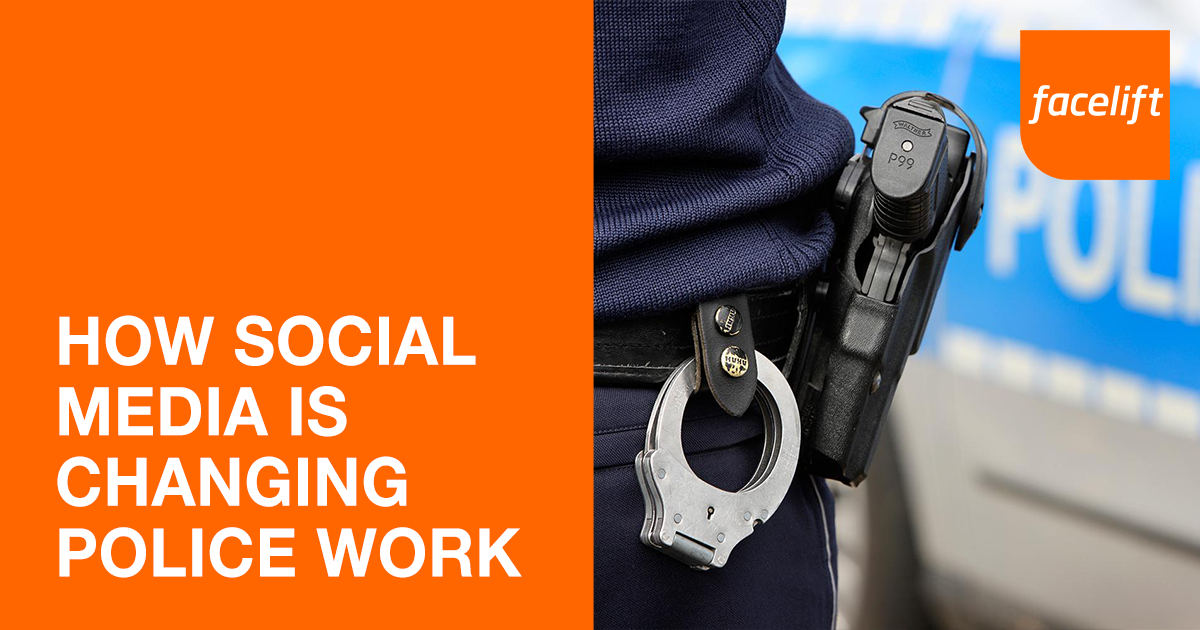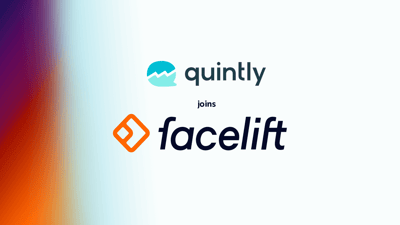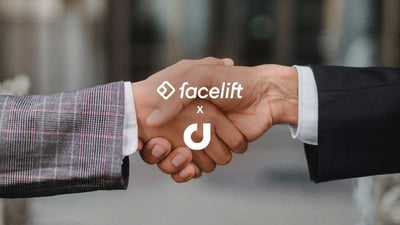Perfect Match or One More Case? —How Social Media Is Changing Police Work
An Interview with Guido Karl, State Editorial Department for Police Web Services at the Ministry of the Interior of North Rhine-Westphalia
One might think working for the police is exciting enough. Violent deeds, traffic and other offenses call for police intelligence work every day. For Guido Karl, a police officer at the Interior Ministry of North Rhine-Westphalia (NRW), Germany’s most densely populated as well as the country’s most populous state, there is no such thing as too much excitement or variety. He finds it essential to be close to the citizens in the virtual world and on the pulse of digital developments. In his view, the police has always been doing social media work and will be doing even more of this work in the future.
How has social media changed police work? What are the challenges associated with social media implementation, and what advice does he have for institutions that are reluctant to use social media?
Since the 1990s, Guido Karl has been the official in charge of establishing the website of the NRW police. Since his first conversation with the then Chief of Police of the Cologne police –when Internet usage was still billed per minute – a lot has changed. What follows is a conversation about how social media works in police work and what might be possible in the future.

(Photo Credit: https://twitter.com/guido_karl)
Mr Karl, you have been with the police for more than 30 years - actually much longer: Your father used to be a village sheriff at a time when there were no cell phones or the Internet.
That's true. In fact, the interrogations took place at our home - it was also the police station in the village. Choosing my father's profession was the natural next step for me.
But you amended your standard police training by some innovative elements.
Yes, my diploma thesis focused on the Internet. The possibilities, which were already opening up at that time, thoroughly fascinated me – especially in regards to police work. My basic training with the police began at the clerical grade level in 1989, my promotion to senior service followed in 1997 - but the Internet fascinated me right from the start.
You pushed the first digital steps of the NRW police. What was your first step?
Our very own, uniform online presence. First, a base had to be created. I was full of energy and eager to get started and spoke to the Chief of Police. This resulted in my own office. I was given a budget and began by equipping our office with the necessary hardware and technology. This department was then further expanded. I participated in BarCamps, built up a huge network, and continue to get further training to this very day.
What about social media is especially exciting to you?
I appreciate the speed of things. That one is being asked to be approachable and available within a community. The opportunity to have a say, to talk to people around the world about specific topics - including those that are controversial. This option is not necessarily available to us on the road. I would not have met many people without social media. I consider this possibility a great good!
What current developments are you following with particular interest?
The developments in China. Considering which new services an app like WeChat creates, for example, these developments can really take your breath away! The future truly is very exciting here.
Since when has the NRW police been using social media?
The police has always been doing social media work! In digital terms, however, the first social media profile went online in 2012. We have now reached over 100 social media profiles at the end of 2018.
What are the three main reasons for using social media in police work?
First and foremost, we want to give the police a face. In NRW, that's 50,000 people! It is important to show them and make people aware that the police are people and that they are approachable.
We also use social media for recruitment purposes. Every year, we see more than 2,400 new hires of policewomen and policemen, as well as many skilled workers. Many of these job openings are advertised via our social media channels. And: we certainly use social media for the flow of information and in exchange. The authorities receive all kinds of leads on a daily basis. In some cases, these messages are received by the minute! On average, over 200 criminal complaints are filed online every day!
Which social media channel is your personal favourite?
I appreciate what each and every channel brings to the table. We work cross-medially. The broader we can spread a message, the better. For example, videos that we upload to YouTube are also distributed via Facebook and Twitter. We often receive this content from individual police operations. Our patrol cars are equipped with camera and video systems. For example, we recently received a video of a chase across the city of Essen. In cases like these, the authorities call a central editorial office, deliver the content, which is then examined, and can go viral thereafter. Like the video by the Essen police from September 23rd.
Which social media channels and platforms does the NRW police prioritise?
Especially Facebook, Twitter, YouTube, LinkedIn, and Xing. Instagram is being tested. This platform would allow us to even better reach a younger target group between 14 and 25 years of age - especially for recruitment purposes. Snapchat did not quite live up to our expectations. Of course, we will continue to monitor the developments.
The communities are a mirror of our society. Social media helps to better capture them.
In your opinion, what advantages does Facebook provide as part of your police work?Facebook is a grateful medium when it comes to reaching the general public. The integration of pictures, videos, and written content is variable. The live streaming feature is great as well.
What do you specifically appreciate about Facebook?
We get much more reactions through the different kinds of likes. In this way, we are better able to capture the mood of the community. The communities are a mirror of our society. Social media helps to better capture them. And we achieve interaction – an active dialogue with the citizens. We can interact directly via an individual post or a private message.
Twitter offers no room for speculation, it only delivers content in real time, which makes our channel particularly credible and reliable.
What benefits do you associate with the use of Twitter?
Twitter allows for communication in absolute real time. The brevity of a post requires only mentioning the most important facts. We use Periscope to broadcast live-stream content. This could be a press conference by the police in the run-up to a Bundesliga match, for example. Via Twitter, we reach media professionals and those followers who want to access information in real time as well as live coverage.
Which media rely on the Twitter channels of the police, for example?
All major media outlets regularly feature our content – and they do so worldwide depending on the current police deployment.
Who is the NRW police re-tweeting most frequently and in regard to which topics?
The tweets by our cities and towns or those of the fire brigades, for example - especially breaking news such as a bomb disposals or large-scale road closures.
#koelninfo Bombenentschärfung in Gremberghoven kann voraussichtlich gegen 22.30 Uhr beginnen https://t.co/rxGpAK4LYx
— Stadt Köln (@Koeln) 13. März 2018
How does the social media department behave in case of controversial discussions?
This is our basic motto - no matter the kind of interaction and even if the police are not always the right addressee:
It is important that people express themselves. We are eager to have a discussion and we take any dialogue with the citizens very seriously. In many cases, this discourse helps to enlighten and build understanding.
Social media is often used to voice anger. How does the department handle this?
There is a need for discernment and wise foresight. We simply cannot respond to every single comment at all times. But if you ask the police a legitimate question, you should definitely receive an answer.
Are there any specific communication guidelines, such as crisis communication or de-escalation guidelines, for example?
That varies from case to case. Our employees in the field of social media are well educated and knowledgeable, and know how to communicate even in times of crisis. Crises are simply a part of everyday life that we are well prepared for.
How hard is it for you and the social media teams to stay neutral in heated discussions?
It's easy because it's our job to be impartial and listen to both sides.
What are the do's and don'ts of police work in connection with social media? You are operating within narrow legal limits, correct?
Absolutely. Above all, there are new laws that clearly govern privacy and data protection. We have to follow strict guidelines here. That certainly does not make police work any easier.
Could you give us an example, please?
For example, faces must not be discernable in images and videos. Live streams may only be used to a limited extent. That's why we only shoot press conferences from the front, for example.
Better or worse - what do you think: Has social media made police work easier or more difficult?
Since the NRW police has been on social media, nothing has gotten worse or improved. But a lot has changed: The language, the expectations of the communities, the media coverage, the speed of the media, and much more. So we have to adapt. Society demands that we are flexible. That's why social media will have to establish itself within public authorities.
What was the biggest challenge in implementing social media?
Our external image along with the associated credibility of our social media channels. Achieving uniformity and clear recognition across 50 police departments is not easy - neither in regards to labelling nor the layout: We started to ask ourselves what our name should be. There had to be a kind of stringency to our external presentation for us to be recognised as the real police. After all, there are also replica sites claiming to be the police or scattered content, which was allegedly published by the police.
Were you able to solve this problem?
Yes, by publishing the same content at the same time across all of our social media channels, in addition to a uniform layout and a single name. This clearly ensures the credibility of our channels.
What benefits does Facelift Cloud bring to the table?
We only require a single Facebook account to maintain all of our social media profiles, for example. Otherwise, all control centre employees who usually receive emergency calls would need their own Facebook accounts. And not everyone has a Facebook profile - and if so, they might only be using their profile privately and not for their police work. We can do without all of this. During content creation, a central editorial plan helps to orient even decentralised sub-departments. The content can be prepared and uploaded via this editorial plan as well. The overview of all regional activities is really lightening my load. Via the application, I can share or re-discuss content within the state editorial office. In addition, all community requests end up in a single inbox via the "Unified Inbox." As such, we do not miss a single message and we can increase our responsiveness.
What was a significant social media highlight for you?
On November 12th, 2018, we launched our search portal. First, we held a press conference. We then put it online - on Facebook, of course. It turned out that 99 per cent of all website visits came from Facebook - everyone wanted to see it! Our website was so overloaded that it collapsed after a short time. Meanwhile, we continued to communicate through our social media channels. For any upcoming exceptional situations, we now know that social media makes for a very good fallback!
Is there a case that the NRW police could not have solved without social media?
No, not to my knowledge. That must have been very exotic cases, but: Thanks to social media, we have definitely increased our reach and any leads are able to reach us much faster.
What exactly does your social media team look like?
We have a central state office that strategically controls the social media work of 50 police agencies. For campaigns, we work together with external agencies and creatives. In total, about 250 employees have social media access within individual authorities.
Which skills are ideally represented in the social media team of the police?
In the best case, the team consists of all-rounders. We need professionals and talent for content creation, for one. On the one hand, journalistic skills, outstanding intuitive knowledge for campaigns, an eye for qualitative images and videos as well as a corresponding technical background are important. On the other hand, our professionals must get what social media is all about! Characteristics such as an appetite for taking risks and a desire to innovate are definitely a plus because that is what makes up social media to a large extent. All of this should go hand in hand with a good sense of what makes our communities tick. Not just any content can be published. Knowledge of what moves the police apparatus is also key.
You are talking about campaign work. Is the NRW police pursuing a specific editorial plan?
Certainly in regards to campaign work. There are issues that we make sure to shine a light on, such as "violence against women." Seasonal contents are also part of the mix, with a current example being "winter tyres." Recently, we hosted a "pickpocketing week" aimed at increasing vigilance, especially at Christmas markets. In general, however, a lot of content is just coming to us - we are lucky to be dealing with an abundance of content! That's why we are not able to follow a stringent editorial plan. Every single day, the NRW police issues between 300 and 500 press releases. We publish only a fraction of those via social media. There is a lot of differentiation that is needed here: What content can we share on which day? Should this message be tweeted or is it more suitable for a post on Facebook?
What do you think: Does the NRW police have what it takes to be in influencer?
50,000 influencers are part of the NRW police, whose task is to positively strengthen the brand. Of course, we also love achieving a positive behavioural change across the board and use our social media channels to do so. "How do you form the perfect emergency lane?" or "Why is it important to keep bicycle paths clear?" - these are also contents that are wonderfully suited to positively influence people. It is important to pay attention to the regional differences: What is well received in a metropolis such as Cologne or Bonn, perhaps does not do so well in Euskirchen. These are the important subtleties.
What advice do you give institutions that are reluctant to use social media?
"Hesitation" is the appropriate keyword. There are reasons why authorities are reluctant to use social media. It is worth entering into an exchange with comparable authorities. Just getting started - I strongly advise against that. One should critically question and consider whether and how one should become active in the social media space. Getting started is easy – exiting is what is so difficult. We, too, have coordinated with peer groups - of roughly the same size - to get a sense of what to expect. This exchange and these experiential values are of fundamental importance. Even today, we regularly take part in workshops. Engaging in an exchange is an important component in order to always pay attention to the external impact, to get everyone involved to the same level, to examine the trends and news.
What’s next: How are you going to continue utilising your desire to innovate and take risks in police social media work?
We are currently considering whether to use Instagram and to what extent. Being able to reach a younger target group via Instagram is a fact. In terms of recruitment, training and education, that makes perfect sense. There are several options here that we are currently toying with. First, a decentralised use. Second, a central use. Third, a hybrid. Fourth, we don’t do it at all.
Which application are you fussing over at the moment?
I would be very excited about WhatsApp usage in police work. Just think about it: About 10 million users live in North Rhine Westphalia alone. Imagine that leads or requests could be submitted via WhatsApp and forwarded to the right place via chatbots. I also find the topic of "artificial intelligence" appealing in connection with police work: I would like to know how it would work across different platforms. Just imagine if the voice output from Google Home, Alexa, or Siri could be used – we would be entering entirely new dimensions!
_ _ _
ABOUT GUIDO KARL
Guido Karl is a restless spirit. He needs change like the air he breathes: New challenges and new projects at all times. Social media keeps him busy. As a "social media consultant consultant" - the emphasis is on the fourth word - he shows the authorities how social media can be used. Meanwhile, many authorities have realised that the use of social media certainly makes sense and they should no longer run away from it. During the past few years, Guido Karl has driven to every single police authority in North Rhine-Westphalia in order to educate and advise them locally. He knows that "you have to convince the leadership first." And then it's time to rethink your own way of working. Because the simple use of social media alone does not break up old structures.



.jpeg?length=400&name=ShareImage_W_Logo%20(Chosen!).jpeg?quality=low)
